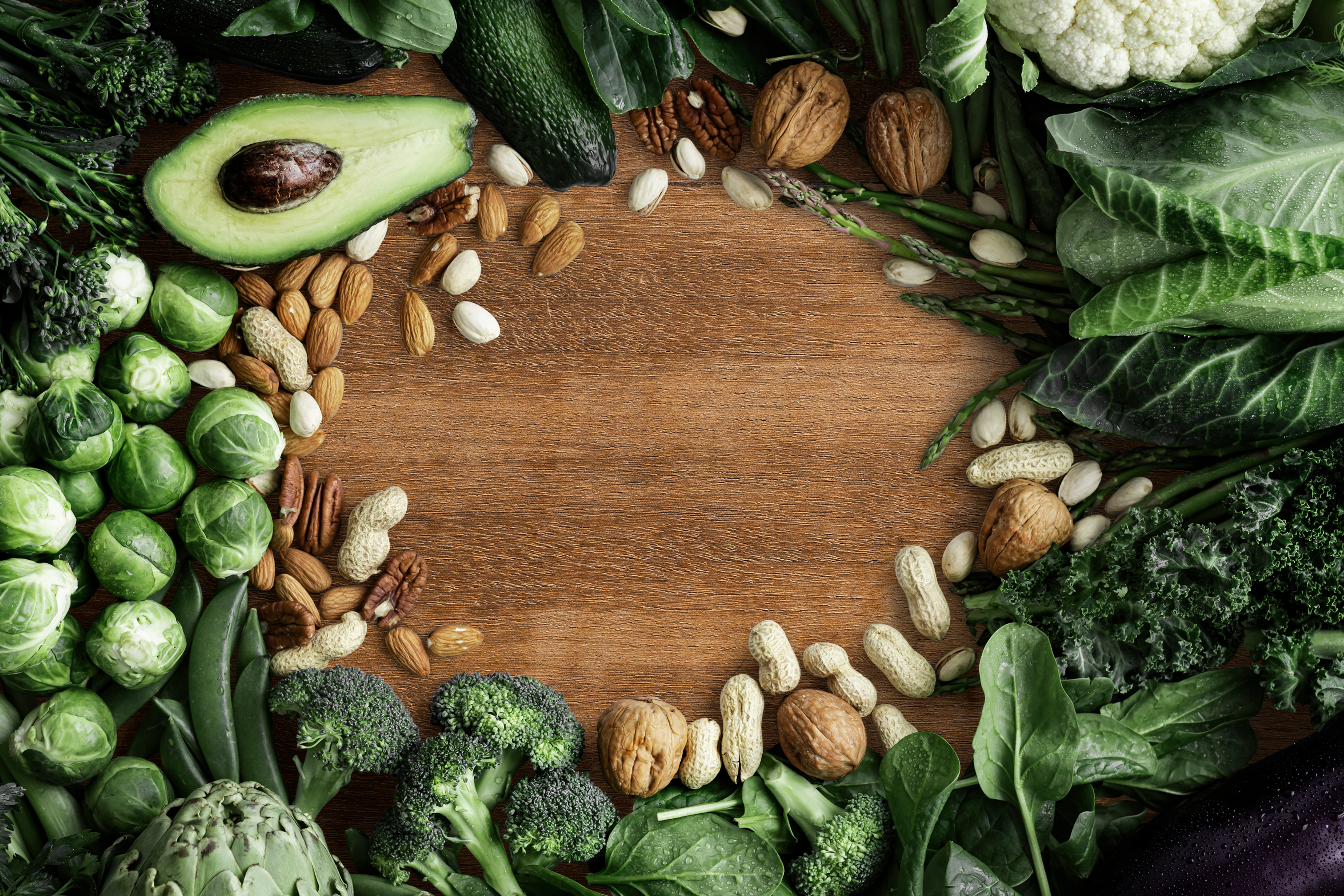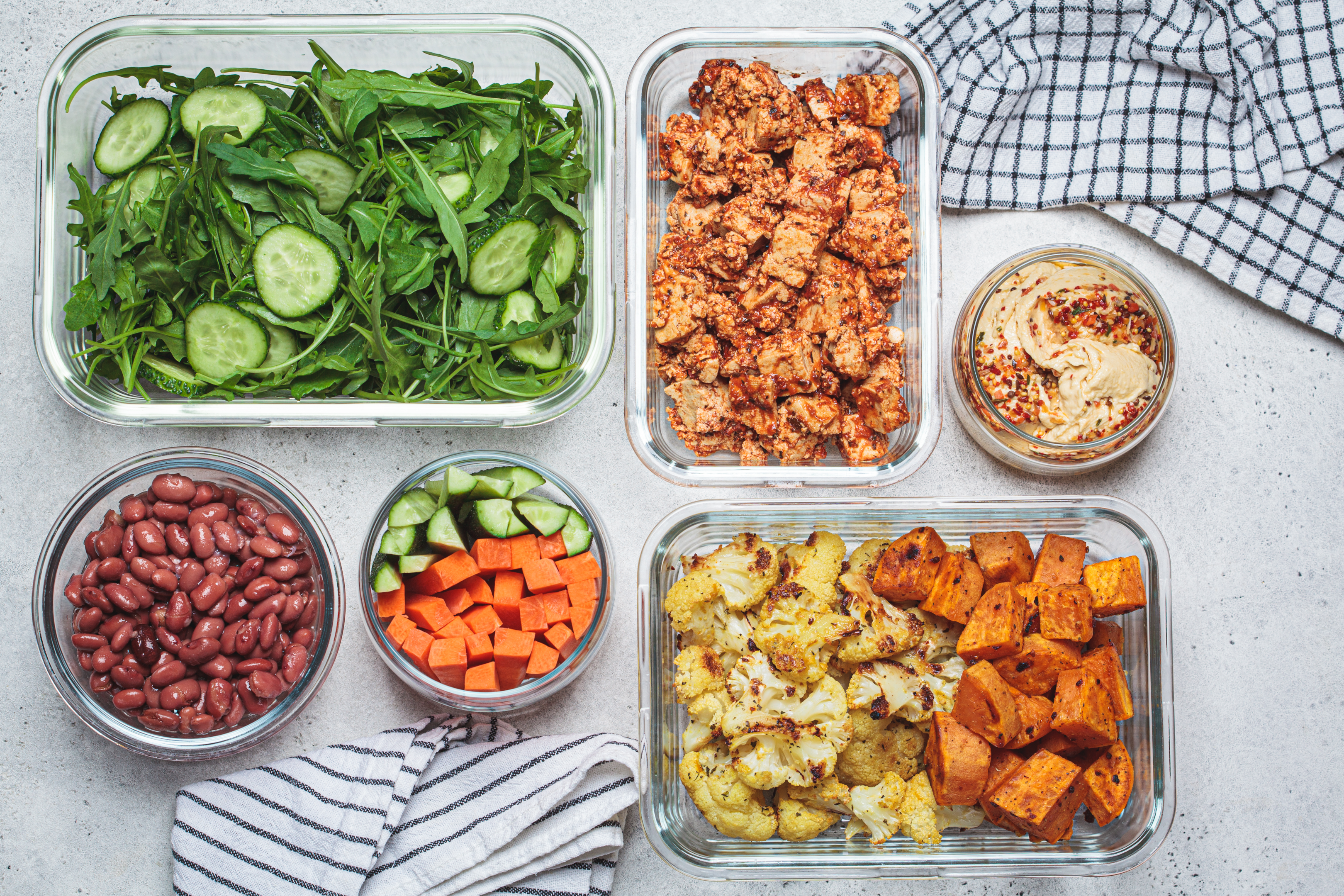What is the Vegan keto diet?


An entirely plant-based diet is known as a vegan diet. The ketogenic diet is a low carbohydrate, high fat, and moderate protein diet. Besides avoiding meat and fish, vegans also avoid eggs, cheese, milk, honey, and gelatin. Vegan diets do not contain animal products; hence, they typically contain a lot of carbs. As a result, vegans may find it harder to stick to the keto diet. However, it is doable with careful planning.
A typical vegan keto diet plan includes the following:
• 65-75% of calories come from fat.
• 15–30% of calories come from protein.
• 10% of calories come from carbs.

Normally, our body uses carbohydrates as its main energy source. In a vegan keto diet, the body uses fat instead of carbs. When this happens, a person approaches nutritional ketosis. A state in which the body stops using glucose and starts burning its fat stores. Low blood glucose levels result in decreased insulin production and a shift in the body's principal energy source from glucose to ketones. The liver produces ketones, fatty substances that power muscles and other tissues. You must be ready to constantly track your carbohydrate intake to succeed with a ketogenic diet because reaching a stable state of ketosis is essential. This biochemical state supports the advantages of keto, such as greater satiety, weight loss, improved heart and brain functions, and more.
Taking in fat is essential. "Essential" in the context of nutrition refers to a nutrient that a body cannot form independently. Thus, fat must be obtained through our diet. Fortunately, animal and plant kingdoms contain vital nutritional lipids/fats.
What are the advantages of fat as the body's primary fuel?
There are several advantages of making fat a primary nutrient source, such as:
• Better blood lipid levels
• Increased insulin sensitivity
• Meals that are more filling will lessen cravings for processed and high-carb items
• Improved immunity and inflammatory control
• The increased capacity for fat-soluble vitamins to be absorbed
Traditional ketogenic diets include meat, fish, and eggs, which offer substantial quantities of dietary fat to help adhere to the advised macronutrient recommendations. But if you wish to move to a vegan ketogenic diet, you must familiarize yourself with additional plant-based sources. To fill your shopping cart, look for nuts, seeds, oils, and fatty foods.
• Olive oil, avocado oil, peanut oil, coconut oil, and sunflower oil are all beneficial plant-based cooking oils.
• Avocados and coconut products include guacamole, avocado paste, coconut milk, and cream
• Nuts, including macadamia, Brazil, and almond nuts and seeds
Getting enough protein is another major factor. Although animal protein sources are thought to be of the highest quality and completeness, plants can also provide a sizeable amount of this crucial macronutrient. To get a good range of amino acids in your diet, combine and match various food items for the greatest outcomes.
• Nuts and seeds, as well as nut derivatives like peanut butter and almond butter.
• Seeds, including chia, hemp, and pumpkin seeds.
• The processed soybean-based foods tofu, tempeh, and others.
• Amaranth, quinoa, and other pseudo-grains.
• A few veggies, such as broccoli and vegetables with green leaves.
• Nutritional yeast.
Some other food options for vegetarians' keto diet include,
• Blueberries, blackberries, strawberries, raspberries.
• Lemon juice, fresh herbs.
• Full-fat coconut milk, coconut cream, coconut milk yoghurt.
• Vegan cauliflower mac, zucchini, mushrooms.

So far, there is not much research on the combined vegan keto diet's effects on health. However, it is reasonable to believe that consuming more plant-based protein and unsaturated fatty acids could prevent the ketogenic diet's potentially harmful cardiovascular effects, i.e., heart diseases.
Other health benefits of a vegan keto diet are listed below,
• Healthy weight loss
• Reduced risk of type 2 diabetes mellitus
• Reduced risk of certain types of cancer
• Reduction in low-density lipoprotein (LPL)
• Improved body’s cholesterol level
• Lowered body mass index (BMI)

A vegan keto diet has a lot of health advantages, but it also has a lot of hazards. It's a really limited way of eating. Restrictive eating patterns affect our gut microbiome, raise the risk of nutritional deficiencies, and are dangerous for several medical issues.
They may also be detrimental to mental health. Restrictive eating patterns can cause disordered eating, which can have emotional consequences.
Vitamin D, E, C, calcium, and magnesium deficiencies are particularly common with low-carbohydrate diets.
Following a vegan diet may lead to an improper intake of selenium, zinc, calcium, and vitamin B12.
A vegan keto diet may eventually destroy the liver due to its extremely high-fat content. Like how it processes alcohol or sugar, the liver must work harder to metabolize lipids. It controls more than 500 bodily processes, including the formation of blood, the regulation of hormones, the excretion of pollutants, and the burning of fat. A toxic liver can cause many health problems and encourage long-term systemic inflammation.
Serotonin, a chemical that promotes mood regulation, requires a moderate amount of insulin to be produced. Due to reduced serotonin production, a ketogenic diet can make you feel down.
Fibre helps with digestion and metabolic problems. Following a vegan keto diet may also cause constipation because it lacks fibre.
You may experience symptoms comparable to the common flu for the first few days or weeks after converting to a diet low in carbohydrates.
If you follow a vegan diet, you should take additional care to get all the necessary vitamins and minerals to stay healthy. You can maintain a healthy diet by undergoing routine blood tests. These blood tests include;
· CBC– Complete Blood Count with Differential and Platelets
· Lipid Profile
· Vitamin B12 levels
· Folate levels
· TSH
· CMP – Comprehensive Metabolic Panel
· Iron and TIBC (total iron binding capacity)
You can determine whether your vegan diet is well-planned to suit your nutritional demands with the help of our Vegan Blood Test kit.
Although a vegan ketogenic diet can be particularly good for your health, you should be aware of the drawbacks. It is an overly restrictive diet that is not appropriate for everyone. The potential of getting nutritional deficiencies is one of the concerns associated with diet. Preparing a vegan keto diet and properly taking nutritional supplements are critical to prevent deficiency. Before beginning a new diet, it is usually a good idea to consult your doctor.
To find more dietary tips or about how your food intake impacts your health, read through the Welzo General Health Hub.









Plus get the inside scoop on our latest content and updates in our monthly newsletter.